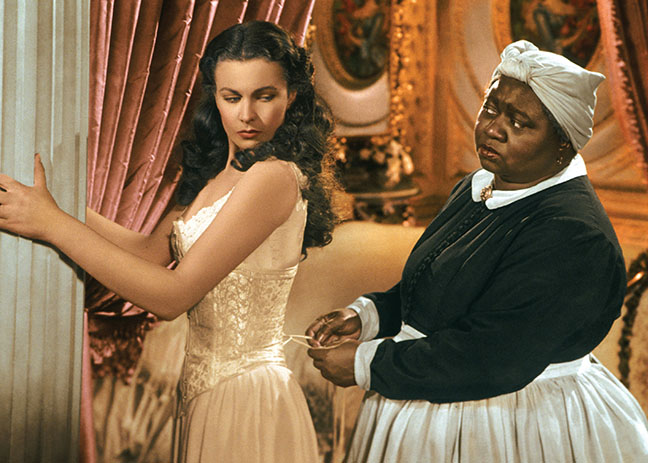Gone With The Wind Returns to HBO Max With Four-Minute Disclaimer: Its ‘Nostalgia Denies the Horrors of Slavery’

Gone with the Wind (1939)
HBO Max has added 1939 civil war epic Gone With The Wind back to its library after removing the film two weeks ago amid nationwide protests. But if you click on the video now, there’s a four-minute, 26-second disclaimer describing its problematic depiction of slavery.
The platform’s decision to remove the film on June 10 came after an op-ed in the Los Angeles Times by 12 Years A Slave screenwriter John Ridley which called for the film’s removal.
“It doesn’t just ‘fall short’ with regard to representation,” Ridley wrote. “It is a film that glorifies the antebellum south. It is a film that, when it is not ignoring the horrors of slavery, pauses only to perpetuate some of the most painful stereotypes of people of color.”
While HBO did note at the time that the film would eventually return to the streaming service, several notable media personalities like Megyn Kelly and Dave Rubin ranted about the decision in early June. Rubin even said on Fox News that he canceled his HBO account after the decision and some of his family members “aren’t that happy with me.”
The introductory disclaimer attached to the film is told by Jacqueline Stewart, a professor of cinema and film studies at the University of Chicago Stewart, who called the film “one of most enduringly popular films of all time.” But Stewart is quick to note the film largely ignores “the horrors of slavery.”
“The film has been repeatedly protested, dating back the announcement of its production,” Stewart said. “Producer David O. Selznick was well aware that Black audiences were deeply concerned about the film’s handling of the topic of slavery and its treatment of Black characters.”
The film won eight Academy Awards, including best picture in 1939. Hattie McDaniel, who played “Mammy” in the film, became the first Black person to win an Oscar. Because of segregation, McDaniel was not allowed to sit with her fellow cast members during the ceremony.
Stewart also said Gone With The Wind shows “servants notable for their devotion to their white masters or for their ineptitude” while its narrative is “through a lens of nostalgia [that] denies the horrors of slavery, as well as its legacies of racial inequality.”
New: The Mediaite One-Sheet Newsletter
Your daily summary and analysis of what the many, many media newsletters are saying and reporting. Subscribe now!






Comments
↓ Scroll down for comments ↓